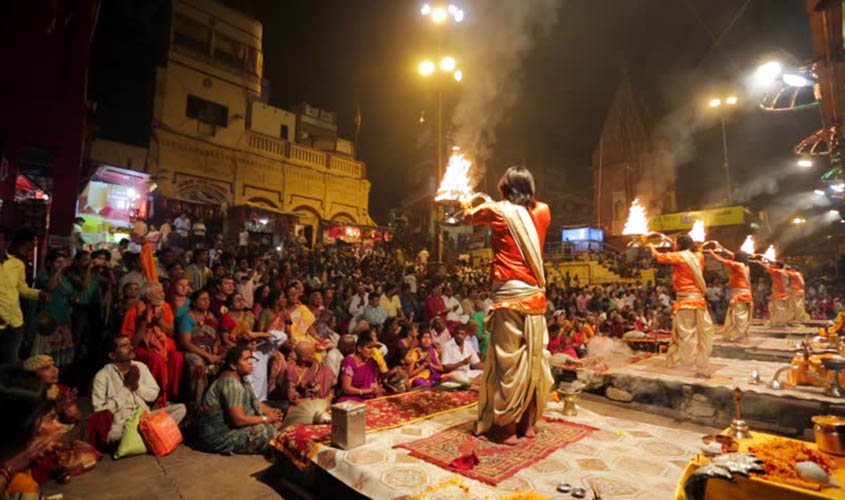Study finds that visits by Indians to their respective religious places have increased by over 10%.
Indians have become more religious in the past 14 years, contrary to the “popular view” that religion is fading from the minds of people in India. This is according to a research survey recently published by Lokniti-CSDS (Centre for the Study of Developing Societies).
According to the survey, visits by Indians to their respective religious places have increased by more than 10% on an average.
As many as 29% of Muslims visited mosques weekly to offer prayers in 2014 which increased to 34% in 2018, while in 2014, 23% Muslims said they never visited mosques and in 2018, only 10% of Muslims said that they never visited a mosque.
For Hindus, weekly temple visits have increased by more than 15%. In 2014, according to the survey, only 29% Hindus visited temples on a weekly basis, that has increased to 45% Hindus visiting temples on a weekly basis in 2018, while 17% Hindus visit temples every day. Only 8% of the Hindus have responded that they have never visited temples in this year.
For Sikhs, the weekly and daily visits to Gurudwara have also increased. While only 27% Sikhs went to Gurudwara on a regular basis in 2018, more than 31% visited Gurudwaras on a daily basis. The weekly visits have also increased from 31% to 49%, between 2004 to 2018.
For Christians, the weekly visits to churches have reduced and daily visits to churches have increased in the past 14 years. In 2004, only 16 visited the church on a daily basis, and this increased to 37% Christians responding that they visit church on a daily basis as on 2018.
According to sociologists and political theorists, the increase in the religiosity of Indians can be attributed to two major factors—one being the growing economic disparity and the other being competing religiousness among several religious groups in the country.
Rajeev Bhargava, sociologist and political theorist, told The Sunday Guardian: “The growing economic disparity and lack of satisfaction among the people in the world of globalisation could be one of the reasons that is driving people to religious places. People flock to religious places to get their prayers answered and even one who has everything, knocks the door of God to keep him well and protect his wealth.”
“Another reason could be the assertion of one’s identity in this era of religious competitiveness. When one religious community tries to assert its identity, automatically, all other religious groups starts feeling threatened and start asserting their religiousness even more,” Bhargava added.
However, religious leaders have a mixed opinion about religiosity having increased in India.
Acharya Dharmendra, a Hindu religious leader, believes that the present environment in the world is as such that people have to take to religion to save and protect themselves and the religion.
“In this century, the kind of environment has become such that one has to take to religion. People have become a firm believer of God, and people are becoming religious in India because we need to protect and preserve our religious identity. The faith and consciousness of all Hindus have woken up to take the shelter of God and protect God and attain inner peace through the path of God,” Acharya Dharmendra told this newspaper.
Mufti Mukkaram, Muslim cleric and Shahi Imam of Delhi’s Fatehpuri Masjid, feels that true religiosity among Indians have decreased. “People today have forgotten the true teachings of the faith. They have started to concentrate more on ritualism than on religion. Some people are becoming religious due to political reasons,” Mufti Mukkaram said.

